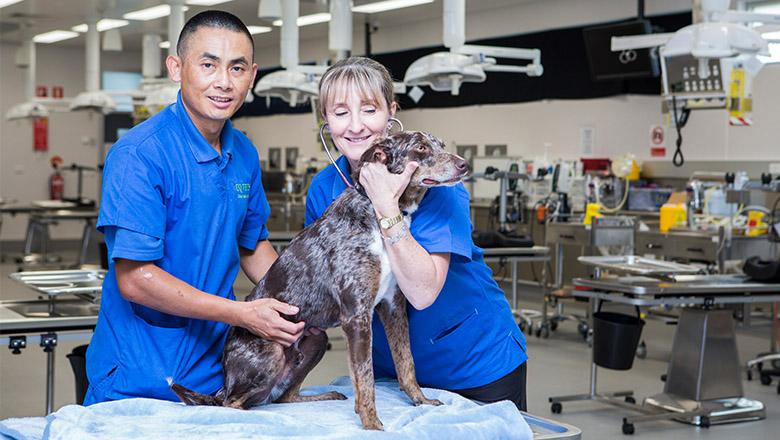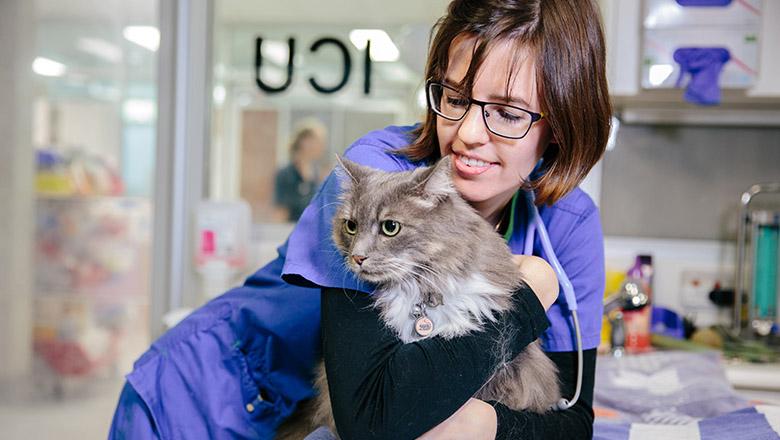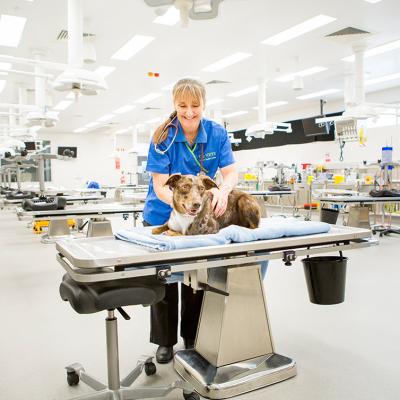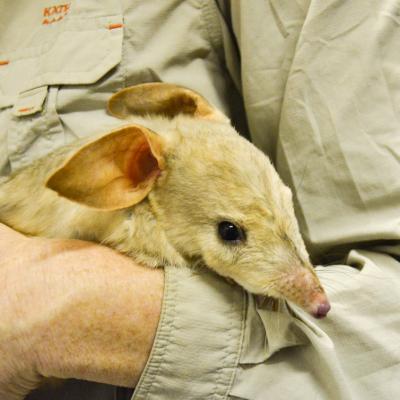A career as a veterinary technologist is challenging and rewarding – and perfect for anyone passionate about providing care to animals in a diverse range of settings.
With a qualification in veterinary technology, you’ll enter an emerging profession with exciting career prospects. You could find yourself working in:
- veterinary practice
- animal health
- biosecurity
- veterinary pharmaceutical companies
- animal nutrition companies
- government agencies
- research institutions
- the livestock sector.
If you’re interested in kickstarting a career in veterinary technology, keep reading to learn more about what kind of work you can expect to be doing in this exciting field.
So, what is a veterinary technologist?
Put simply, in a veterinary practice, veterinary technologists (or vet techs) work under the supervision of a licensed veterinarian to help diagnose illnesses and injuries in companion and production animals.
A veterinary technologist is responsible for conducting a variety of procedures, such as:
- emergency first aid care
- medical testing (x-rays, pathology tests)
- anaesthesiology
- dental care
- surgery prep
- postoperative care
- specialised nursing.

Vet tech vs nurse
A veterinary technologist is different to a veterinarian nurse. A veterinary technologist completes bachelor-level studies, while nurses typically complete a certificate, diploma or associate degree.
A Bachelor of Veterinary Technology will equip you with practical skills and theoretical knowledge, which will open up a wide range of career opportunities and specialisations. We delve further into what you’ll learn as a UQ vet tech below.
Vet tech salary
The average salary for a vet tech is $68,000 in Australia. However, data suggests that many salary reporting entities group vet nurses and vet techs under the same umbrella, so it's likely that you could be looking at a higher salary with bachelors-level qualifications.
Vet tech career options
Most vet tech graduates gain employment in veterinary clinical practice, including:
- primary care clinics
- mixed practice
- emergency and critical care
- specialist hospitals.
Veterinary technologists often work for practitioners who treat cats and dogs, but there are also opportunities to work with cattle, birds, pigs, and many other animals.

Alternative careers for vet techs
If you’re looking for something a little different, there’s certainly a diverse range of career pathways you can explore with the skills and knowledge gained from a qualification as a vet tech.
- Veterinary nutrition technician – become a specialist in nutrition for animals and help pet owners provide the healthiest possible diet to their pets.
- Veterinary research – as the world of veterinary science continues to gain complexity, contribute to a growing field of important research on animal health, care, and treatment.
- Animal science teaching – share your knowledge of the veterinary and animal science world to educate the community and next crop of professionals.
- Biosecurity – use your inquisitive, curious and scientific mind to help safeguard Australia from damaging pests and diseases.
A role in high demand
With reported shortages of veterinarians in Australia and across the globe, there are gaps in the industry’s ability to meet the growing needs for animal care and client expectations. These gaps can, and are, being filled by veterinary technologists under the supervision of registered veterinarians.
With the industry and demand continuing to grow in Australia and overseas, it’s a perfect time to become a qualified vet tech.
Studying vet tech at UQ
UQ’s Bachelor of Veterinary Technology offers an advanced pathway to a fulfilling career as a veterinary technologist. As a qualified vet tech, you’ll have a high level of knowledge and competency after completing an extensive theoretical and research-based education, integrated with practical and clinical experience over 3 years.
The veterinary technology profession has gained significant recognition across industry and governing bodies, including the Veterinary Nurses Council of Australia (VNCA), the Australian Veterinary Association (AVA), and Queensland Health.
If you’re interested in forging a meaningful and rewarding career, providing care to animals in a variety of interesting settings, UQ’s Bachelor of Veterinary Technology program is a perfect place to start that journey.
Want to know more about the types of careers you can pursue with a university degree in agriculture and animal sciences?






